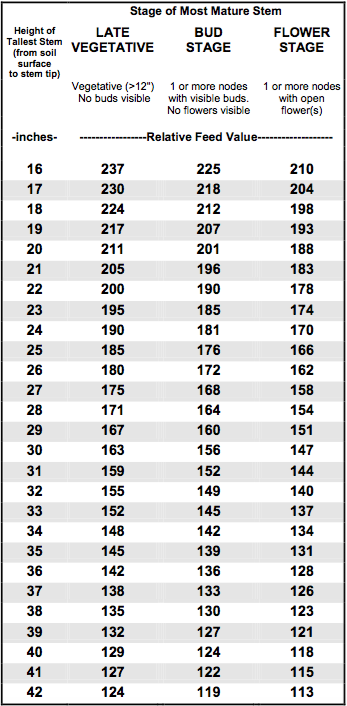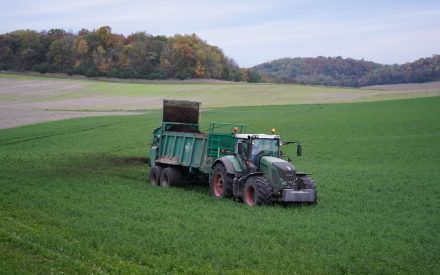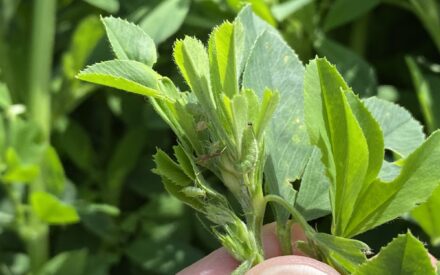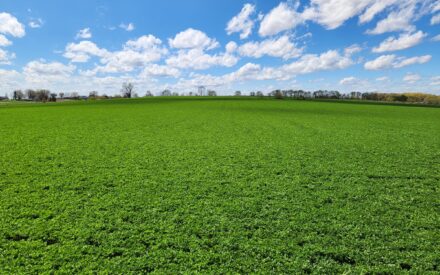
Step 1: Choose a representative 2-square-foot area in the field.
Step 2: Determine the most mature stem in the 2-square-foot sampling area using the criteria shown in the table to the right.
Step 3: Measure the length of the tallest stem in the 2-square-foot area. Measure if from the soil surface (next to plant crown) to the tip of the stem (NOT to the tip of the highest leaf blade). Straighten the stem for an accurate measure of its length. The tallest stem may not be the most mature stem.
Step 4: Based on the most mature stem and length of the tallest stem, use the chart to the right to determine estimated RFV content of the standing alfalfa forage.
Step 5: Repeat steps 1 to 4 in four or five representative areas across the field. Sample more times for fields larger than 30 acres.
NOTE: This procedure estimates alfalfa RFV content of the standing crop. It does not account for changes in quality due to wilting, harvesting, and storage. These factors may further lower RFV content by 10 to 25 units, assuming good wilting and harvesting conditions. This procedure is most accurate for good stands of pure alfalfa with healthy growth.
The PEAQ system for estimating alfalfa quality in the field was developed by agronomists at the University of Wisconsin – Madison


 ▶ Watch: Focus on Forage Management
▶ Watch: Focus on Forage Management ▶ Forage Insect Pest Update
▶ Forage Insect Pest Update ▶ Determining the Value of Standing Forage
▶ Determining the Value of Standing Forage


